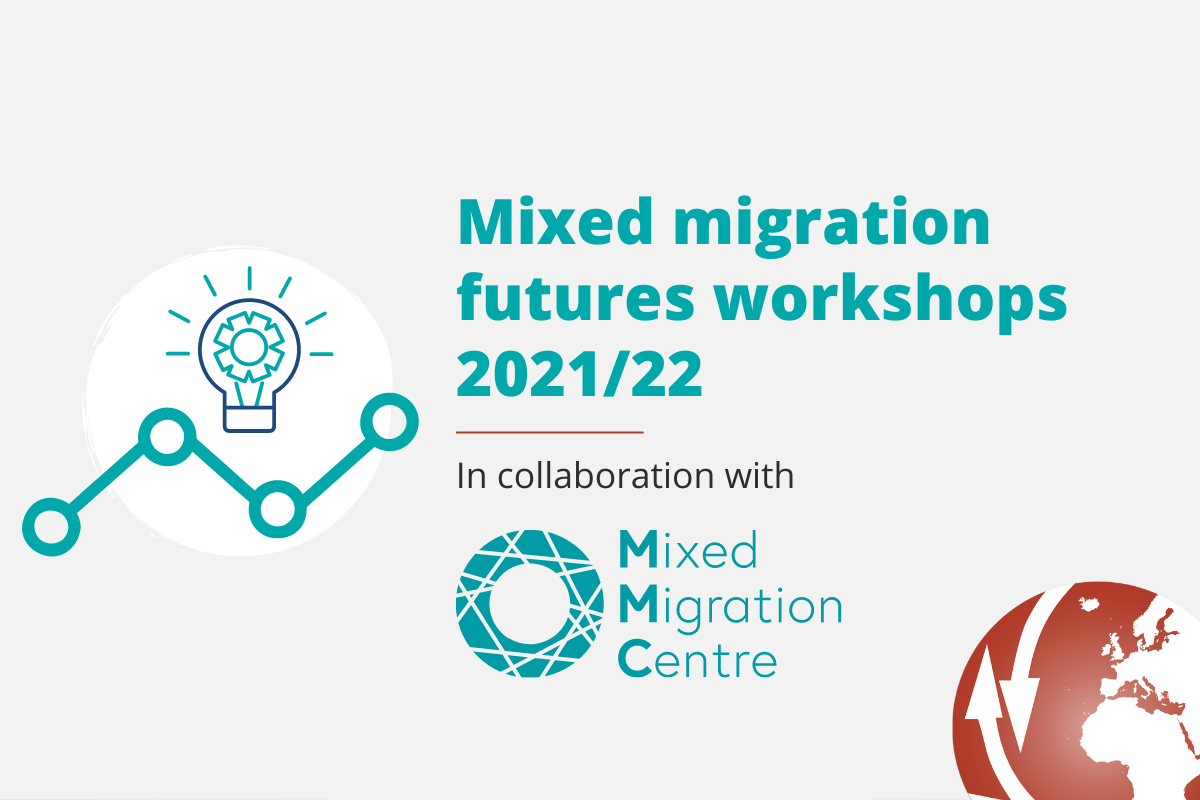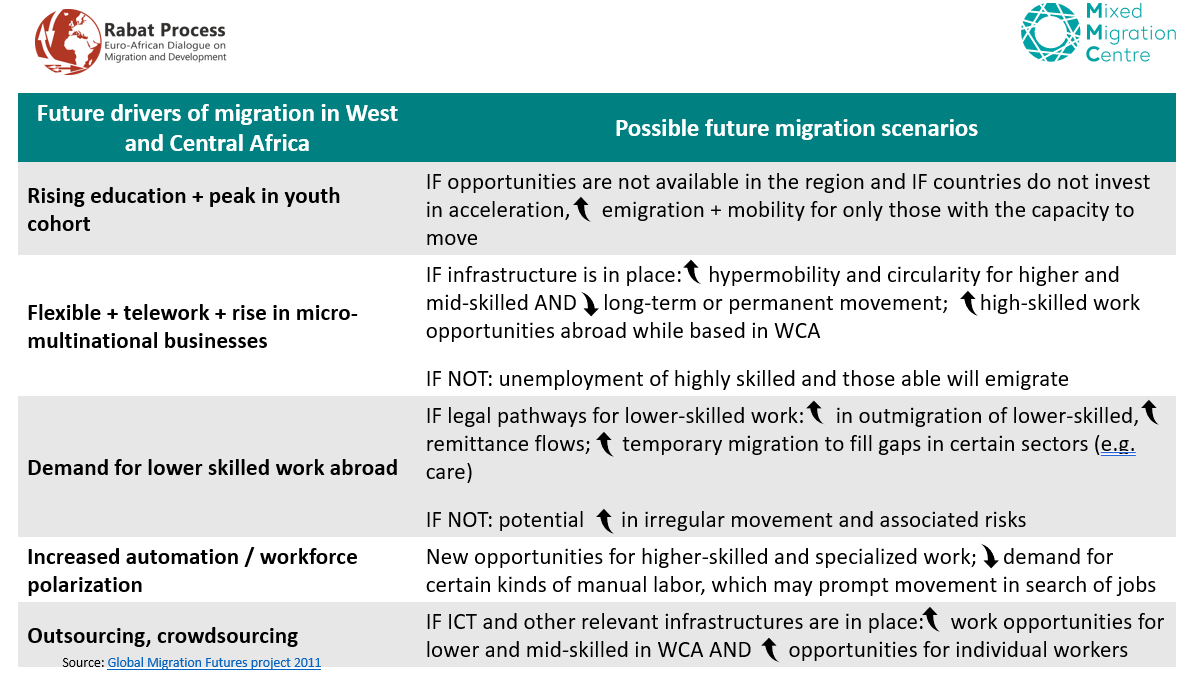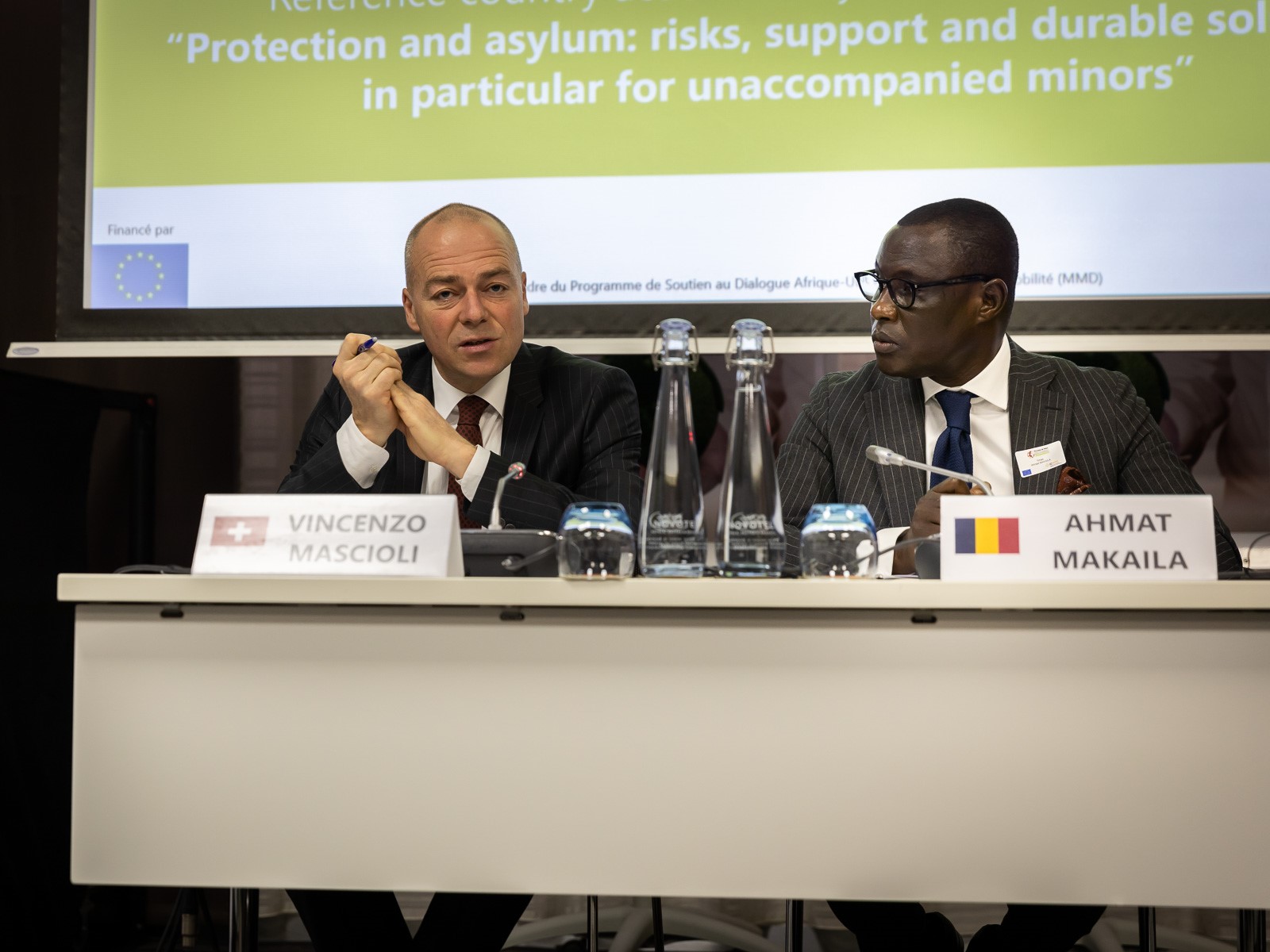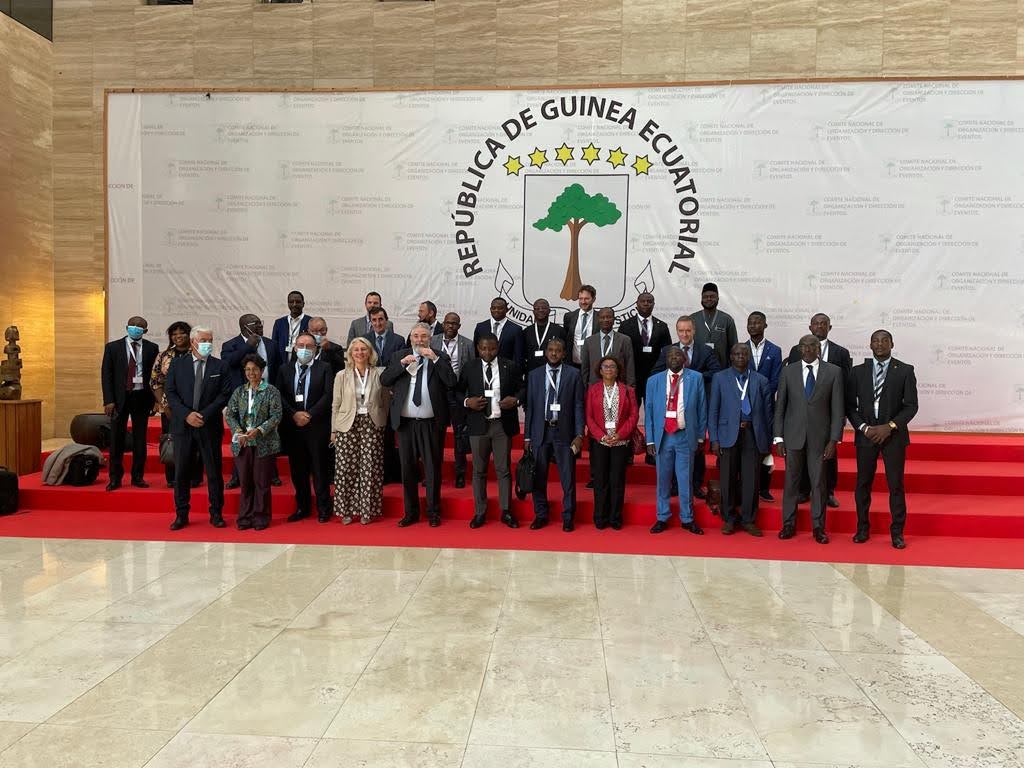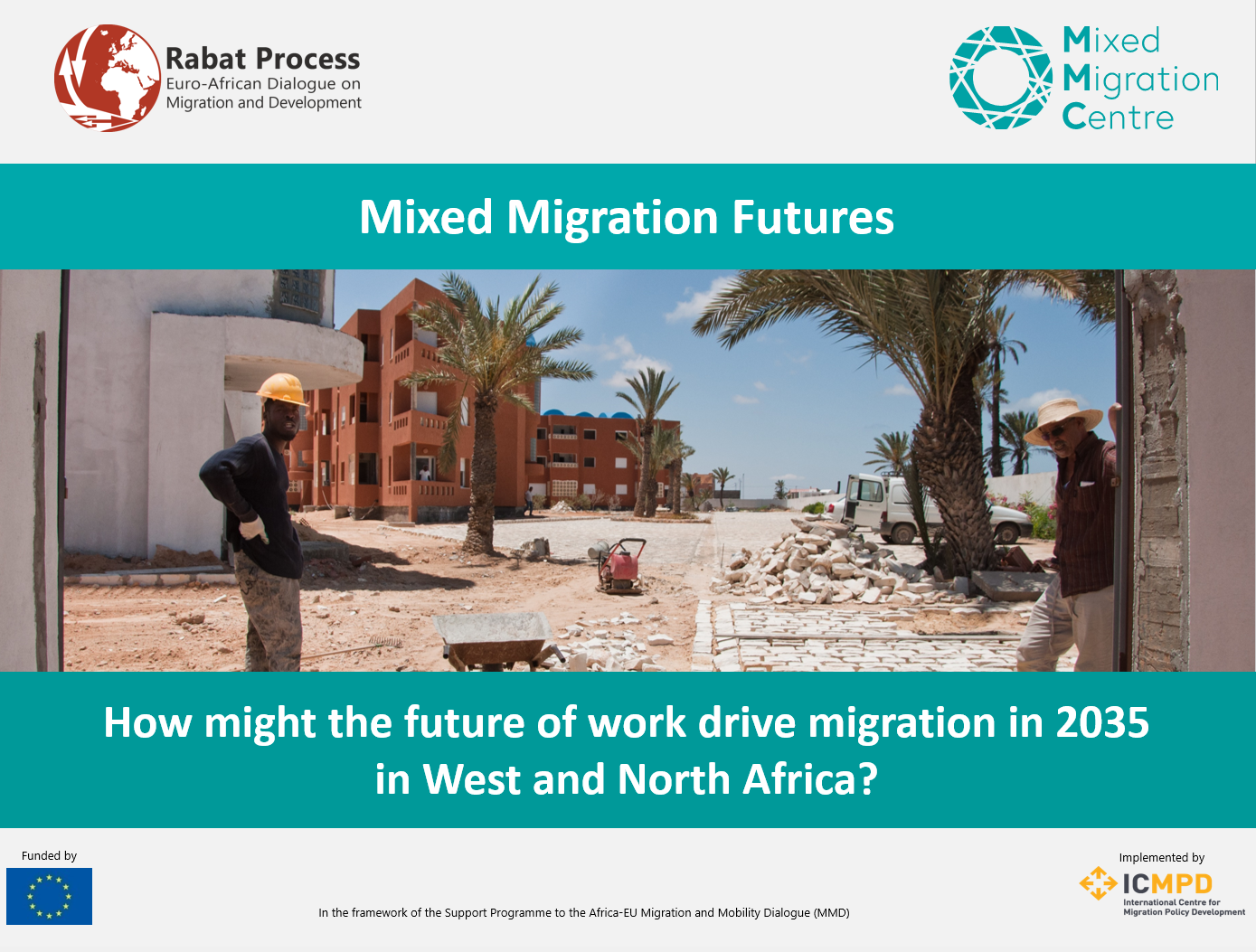How might current megatrends drive migration in 2035 in West and North Africa? Rabat Process partners explored this question in a series of Migration Futures Workshops, organised by the Rabat Process Secretariat in partnership with the Mixed Migration Centre (MMC).
Following a pilot scenario-building workshop on the impact of technology on migration held on 16th June 2021, a Migration Futures Workshop on “Climate Change” followed on 27th October, and another Migration Futures Workshop on the “Future of Work” took place on 1st December.
Based on the latest research and data, including MMC’s 4Mi data collected among refugees and migrants on the move (mainly in West and North Africa), Rabat Process partners and MMC researchers examined hypotheses regarding future mixed migration flows in the Dialogue region.
- "Understanding the Rate of Change in Mixed Migration": The role of technology within migration dynamics (MMC, 16th June 2021)
- “Mixed Migration Futures: How might climate-related events and environmental stressors drive migration in 2035 in West and North Africa?”(MMC, 27th October 2021)
- “Mixed Migration Futures: How might the future of work drive migration in 2035 in West and North Africa” (MMC, 1st December 2021)
Climate change – Migration Futures Workshop, 27th October 2021
The workshop focused on how climate-related events and environmental stressors might drive migration in 2035 in West and North Africa. Indeed, current research shows that environmental factors and climate change are already affecting mobility and displacement. MMC presented quantitative data providing insights into the complexity of the matter.
When specifically asked if environmental factors played a role in a person's decision to leave, 33% to 62% of respondents agreed, depending on their country of origin. The data also highlighted the intertwined nature of migration drivers: for example, respondents who stated that environmental issues played a role in their decision to migrate most often cited economic drivers as the principal factor.
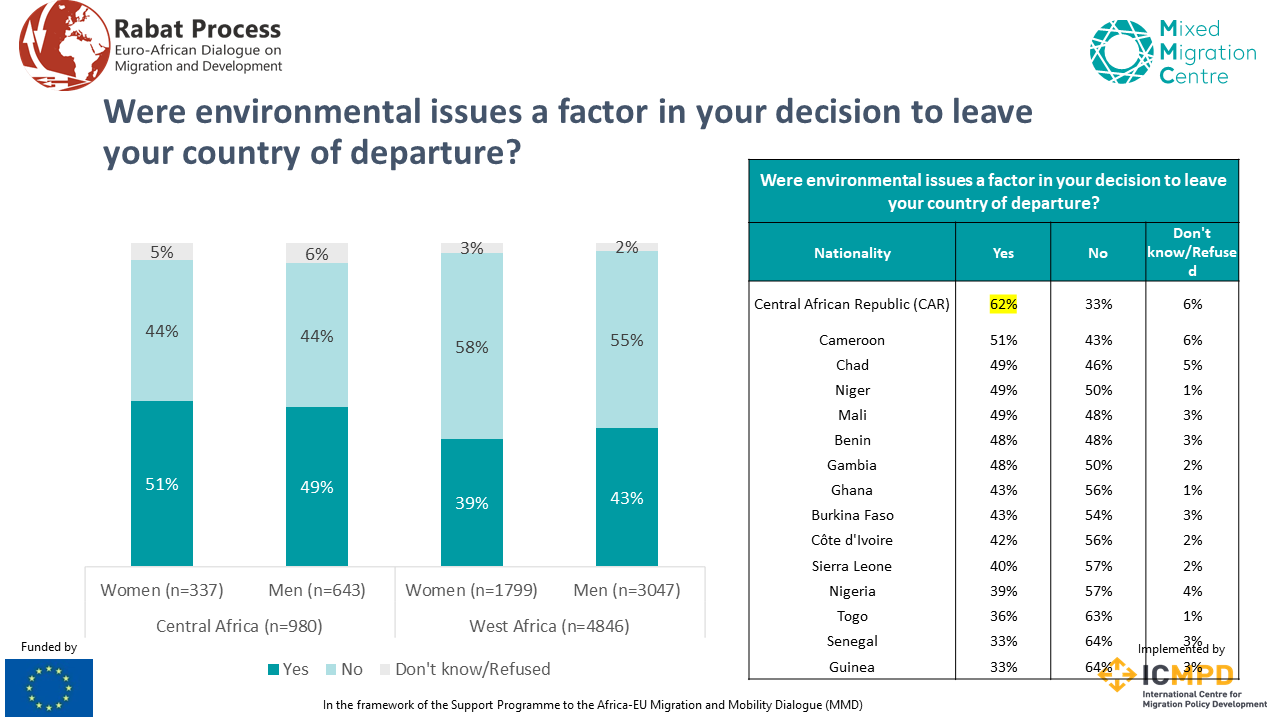
To gain a more complete picture of the impact of environmental change on mobility, MMC proposed a new conceptual model that is centered on the decision to move and takes into account both the capability and the aspiration to migrate.
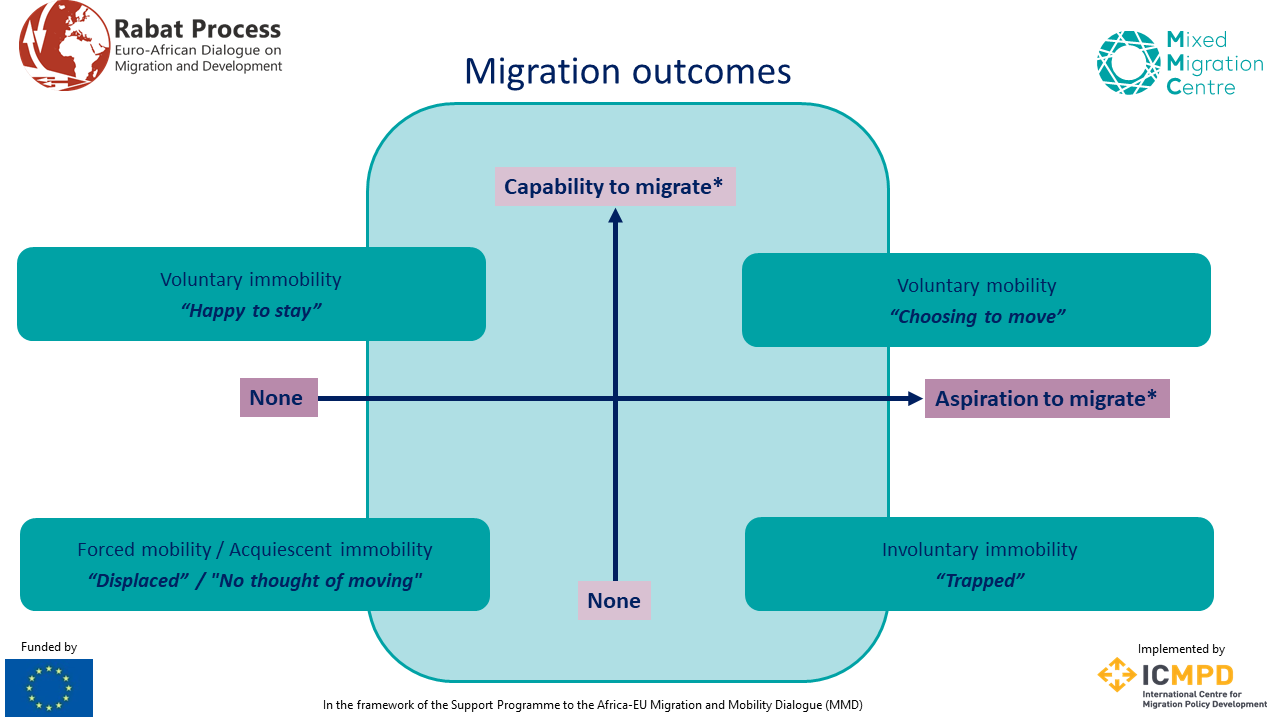
Climate change - implications for migration policy-making
Based on the data and research, MMC identified four policy areas related to environmental change and mobility that are likely to require particular attention in future:
• Resilience
• Circular migration
• Rural-to-urban mobility
• Cross-border movements
The future of work – Migration Futures Workshop, 1st December 2021
Demographic and technological developments are closely interlinked with the future of work and its impact on mixed migration. While societies in high-income countries are ageing, high fertility rates in low-income countries have led to a significant number of young job seekers. And while technological advancements have the potential to eradicate entire job profiles, certain job profiles, such as nurses or construction workers, will remain in high demand. These developments have the potential to create a win-win situation, with young people from low productivity regions moving to regions with high demand in workers. However, policy makers may also react to this situation by further restricting legal pathways, which is likely to widen global inequalities and the demand for irregular migration and smuggling.
4Mi data collected in 2021 reveals the skills’ profiles of people currently on the move (mainly in West and North Africa). 67% of respondents completed secondary education, vocational training or a university degree. Those with vocational training stand out, as they were by far the most likely to have made money in the 12 months prior to their departure (82%) in sectors that match the current labor market within Africa.
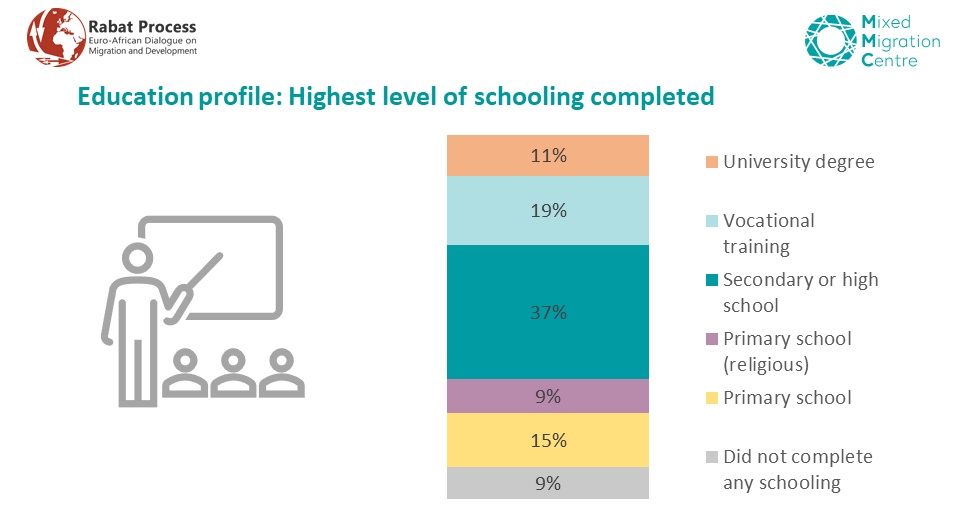
Prior to departure, 34% looked for alternatives which would have allowed them to stay, mostly by looking for another or better job.
The future of work and mixed migration scenarios
A mapping of current and future drivers, such as rising education rates among West and Central Africans and drivers linked to demographic and technological trends, shows possible consequences for mixed migration in West and Central Africa:
Future of work - implications for migration policy-making
The following recommendations for policy-makers are rooted in the analysis of the above-mentioned data and trends:
- Qualifications recognition will be key to ease the movement of workers and skill matching in the labor market.
- Including strategies around mobility is key within broader migration strategies.
- Establishing the right technological and governance infrastructure to align with trends around the future of work is recommended.
- Portable rights and social benefits will be key in shaping decisions around mobility.
- Remittance and online banking technologies will promote the contribution of migration to development processes.
- Legal pathways for lower-skilled movements will be key when ageing peaks in Europe.
- Investing in ‘accelerating education’ to benefit from and take part in new digital economies.
Upcoming Migration Futures Workshop
The next and final Migration Futures Workshop will take place in person in early 2022. Watch the upcoming activities section for further information!
Downloads
- "Understanding the Rate of Change in Mixed Migration": The role of technology within migration dynamics (MMC, 16th June 2021)
- “Mixed Migration Futures: How might climate-related events and environmental stressors drive migration in 2035 in West and North Africa?”(MMC, 27th October 2021)
- “Mixed Migration Futures: How might the future of work drive migration in 2035 in West and North Africa” (MMC, 1st December 2021)

